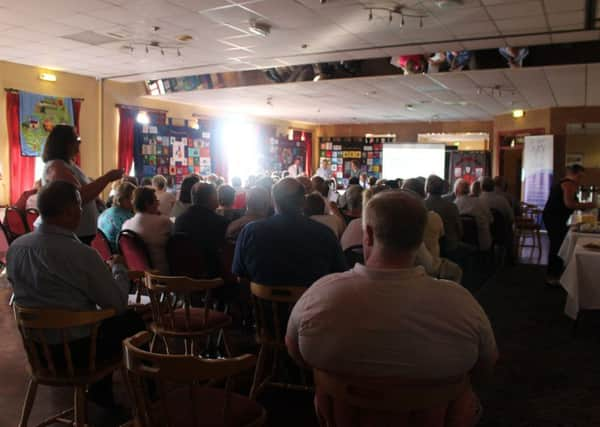Equating victims to terrorists is '˜major concern' at legacy events


The South East Fermanagh Foundation (SEFF) held 10 public events to discuss the ongoing government consultation on dealing with the past.
Kenny Donaldson of SEFF said 95% of the 325 people who gave feedback indicated that the definition of victim in the 2006 Victims and Survivors (NI) Order was “a major concern”.
Advertisement
Hide AdAdvertisement
Hide AdHe added: “Many indicated that it is this issue which causes them deepest distress, that the state enables those who perpetrated terrorism and criminal violence to be classified as victims.
“In open discussion many victims spoke of their hurt that ‘communal victimhood’ was being accepted by the establishment as the prevailing narrative – where everyone is equally responsible for every murder.”
The only prospect for changing the definition, he said, was fresh Westminster legislation to put Troubles and Islamist terror victims on an equal footing.
Alan Lewis of Markethill-based Families Research and Policy Unit (FRPU) also said victims had raised the definition in all six of their consultation meetings across NI.
Advertisement
Hide AdAdvertisement
Hide Ad“It’s evident that definition of a victim is the number one issue of concern amongst genuine victims,” he said.
Fermanagh UUP MLA Rosemary Barton asked why the Commission for Victims and Survivors was not holding open public events to gauge opinion on the legacy consultation.
She said the commission has embarked on “closed-group sessions” for which interested people must register to attend.
But a spokeswoman for the commission responded that it was engaging extensively in a “safe and ethical way” and that it “values every voice by supporting individuals and aiding their understanding in order to share their contribution”.
Advertisement
Hide AdAdvertisement
Hide AdThe commission has previously witnessed how large public events can result in “retraumatising individuals” and has been engaging with stakeholders across the British Isles in a variety of ways since May.
The statutory definition of a victim is a matter for government, although Commissioner Judith Thompson “does acknowledge and understand the difficulties” it presents for some victims and survivors.
The Northern Ireland Office said the consultation runs until September 10 and everyone is encouraged to submit their views at www.gov.uk/nio.